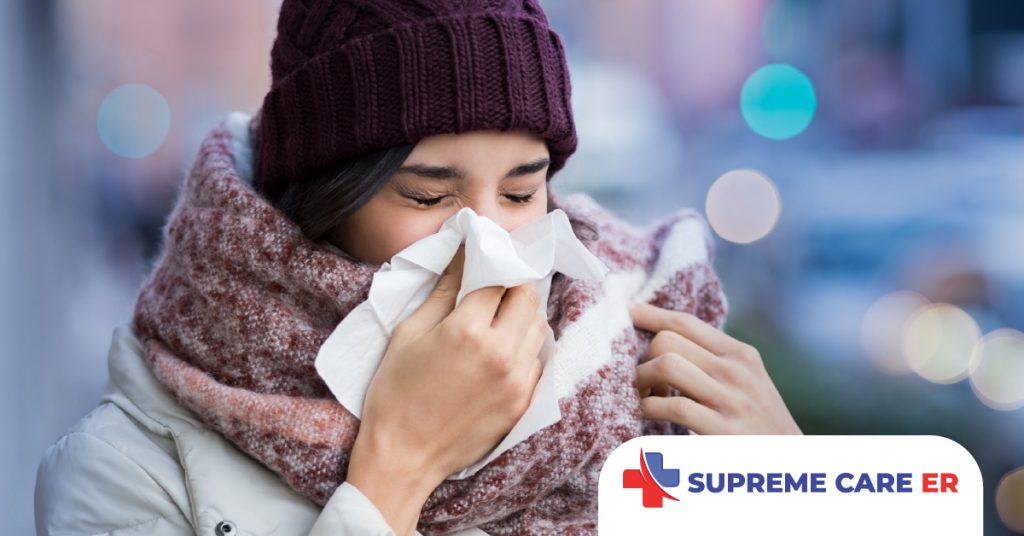Respiratory syncytial virus (RSV) is a common respiratory illness of the Paramyxoviridae family that causes breathing difficulties in infants and young children. RSV usually causes mild symptoms, but it can be a problem during cold and flu season.
Respiratory syncytial virus predominantly affects children under three years old, but it can also cause hospitalization in older children and adults. According to the center for disease control and prevention, RSV accounts for about 58,000 hospitalizations in America each year.
While most infants and toddlers recover from this viral infection with no complications, others may develop complicated conditions such as pneumonia, middle ear infection, and asthma.
How do People get Respiratory Syncytial Virus (RSV) Infections?
The Respiratory Syncytial Virus (RSV) is the leading cause of lower respiratory tract infection and hospitalization in young children.
Among infants, immunizations provide the best protection. Early identification and isolation of infected infants play essential roles in controlling the disease.
RSV spreads when an infected person sneezes and disperses droplets into the air. Active infection occurs when you inhale or contact droplet droplets lingering in the air.
Many types of RSV affect your nose, throat, eyes, and lungs. As there are many forms of RSV available, your body may be unable to fully develop immunity to it, resulting in recurrences throughout the same season.
The symptoms of RSV usually appear two to eight days following exposure and take one to two weeks for children and adults to recover fully.
What are the Symptoms of Respiratory Syncytial Virus (RSV) Infection?
While RSV may not present significant symptoms at first, you must monitor your child all the time when they are ill to treat them as soon as possible.
It is common to experience most symptoms and a cold or cough lasting over a week. These symptoms include:
- Lack of appetite
- Dehydration
- Fever over 101 degrees Fahrenheit
- Wheezing
Despite the high infection rate, only a tiny percentage of these children experience severe symptoms or complications.
Prevention
Maintaining a spotless home is the best way to stop the virus from spreading. Keeping your hands clean is very important to prevent the spread of these viruses. If an elderly child has cold-like symptoms, they must stay away from the younger ones.
However, it is crucial to maintain a close eye on your child and pay particular attention to the symptoms of RSV.
It is vital to see your doctor as soon as you notice any symptoms such as high fever, thick yellow, green, or gray discharge from the nose, cough that gets worse, or trouble breathing because these symptoms can get progressively worse very quickly in children.
Your doctor may provide you with antibiotic shots (RSV vaccines) to bolster your immune system; however, it is essential to note that the antibodies last only a short time, so you must administer the injections regularly.
How is Respiratory Syncytial Virus (RSV) Diagnosed?
If your healthcare provider suspects a more severe illness, he may order imaging tests (X-rays, CT scan) to check your or your child’s lungs.
Your doctor will first examine your medical history and symptoms before making a prognosis. Your doctor will perform a physical examination which includes pulse oximetry (finger monitoring test) to check oxygen levels in the lungs.
In the case of an infection (such as a higher than usual white blood cell count), your doctor may order blood tests and take a nasal swab to check for viruses.
Your healthcare provider may order additional tests such as imaging tests (X-rays, CT scan) for a more accurate prognosis.
How to Treat RSV
For those children who suffer from a mild case of Respiratory Syncytial Virus, you can prevent dehydration by drinking electrolyte-replacing fluids regularly (stay away from sugary sports drinks).
If you suffer from a mild case of Respiratory Syncytial Virus, you can prevent dehydration by drinking electrolyte-replacing fluids regularly. It is important to avoid sugary drinks as they contain fewer essential minerals and low calories.
Consult your doctor about what is available for you before taking any form of medication. Your doctor may prescribe the use of Tylenol to relieve headaches and fever. It is important to note that aspirin can lead to potentially fatal Reye’s syndrome in children suffering from Respiratory Syncytial Virus.
You can use a bulb syringe to suction mucus from your baby’s nasal passage and allow them to take enough rest. Generally, your body functions best in fighting the virus when sleeping.
If your child shows more severe symptoms of the disease, you should take them to the hospital as soon as possible. In this case, the medical staff usually prescribes strong medication to get rid of the disease, and they may even administer IV fluids to prevent dehydration.
Infection with the respiratory syncytial virus can sometimes be severe, especially in premature babies. If you suspect any of the symptoms of RSV, you should seek immediate medical attention.








